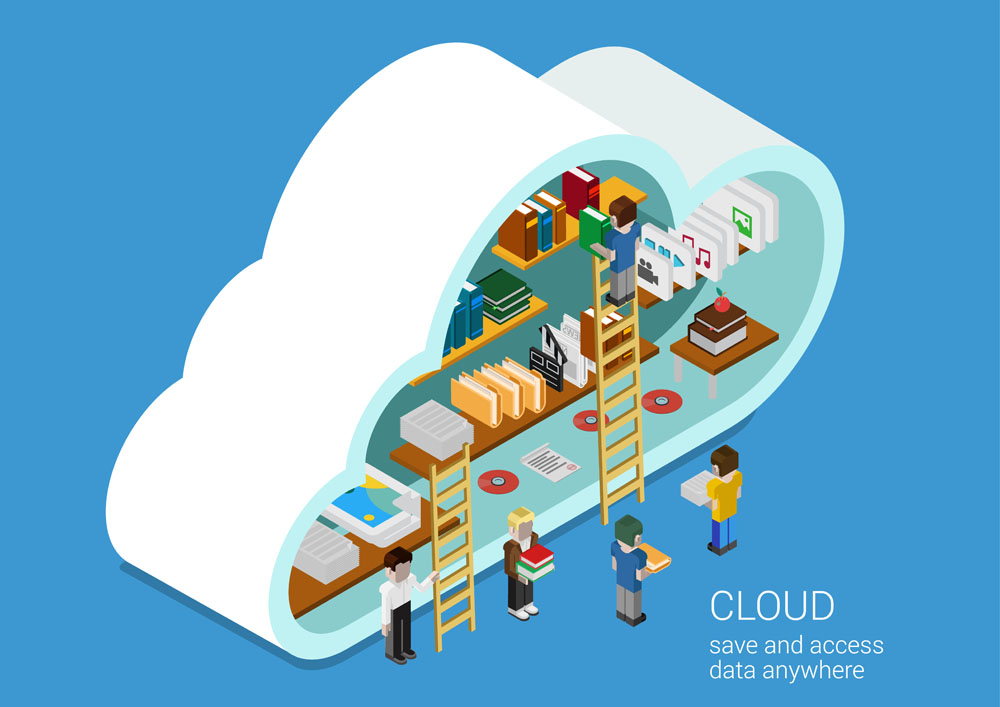
Backup Before You Back Out
Have you ever wondered what you would do if you lost all your contacts, messages, emails, images, videos, and songs on your phone?
You would plug it into your computer or sync with a cloud system and restore it from the offline backups, right? But what would you do if you lost all of that data too? Now, if you think that’s bad, imagine if you lost all that on your business’ servers, that also store important information, such as financial data (including sales and transaction data), the customer database, as well as the business’ private info., and if applicable – employee info.
There are many reasons why businesses should retain backups of their data, particularly their websites – I’ll dive into them in this article.
Introduction
With an ever-growing need for data in an information age, one of the smartest decisions for a small business is to keep secure, easily accessible offline backups of data. This is something many businesses fail to understand until it’s too late. For the smallest of businesses, you can use an external hard drive to backup your PC, but just a reminder that if the hard drive fails, recovery costs can reach up to $3500, and in some cases, the data is unrecoverable.
Essentially, it is inevitable that all drives will eventually fail. Depending on the nature of your business and website, there are different reasons as to why you need to backup your websites and documents on the cloud: hacker and malware attacks are always looming, hardware is sometimes faulty (it’s just an IT fact), which can causes websites to crash and/or become corrupted, as well as their offline backups.
Also, humans and nature can become a cause of dramatic data loss. It’s also well worth considering the effects that these have on a business, its functioning, and performance.
Why should I backup my website?
1. Hackers Can Be Horrible
According to datalossdb.org, 4369 data loss incidents of personally identifiable information happened globally over the past three years, 50% of them were businesses, and around 31% were from hacking. Hack attacks happen on a daily basis. They come in many forms and magnitudes, whether manual or automated.
There are various reasons as to why someone would hack a website: to steal or delete information (including customer databases and sales data), to inject malware that corrupts the website or attempts to scam its viewers, or even just due to boredom. And you really do not want anyone to gain access to the private or financial information of you or your customers. So, you could say that it’s crucial to backup your files, particularly with a trusted and secure web host.

2. Machines Aren’t Perfect
It’s true, no machine is perfect; it will not run forever, or at least continuously without complications – everyone in the IT industry knows this.
Particularly, in regards to data storage, no computer is reliable. Trust no computer. Maybe something that can convince you is the fact that hardware or system problems make up 56% of general data loss incidents, as reported by Kroll Ontrack Data Recovery’s findings.
The turn of the digital age had brought a shift of information and files from a physical form to a digital form; from filing cabinets onto computers. The size of your data and website determines the size of storage devices that you’ll manually need to backup to, and that determines the costs involved in purchasing and maintaining the devices. Even though you’ve gone through all that hassle, there is still a good chance that the devices will fail – for example, due to a power outage.
On the other hand, you could backup to a cloud storage service and be done with it. Your data and website is in a secure data centre. Machines aren’t perfect, but data centres in which cloud backups are stored are the easiest, and safest options.

3. Humans Aren’t Perfect
Alexander Pope once said, “to err is human”. He couldn’t have simplified human nature more than that. If the things we create aren’t perfect, we can’t expect ourselves to be perfect. Here’s a scenario to think about: when stumbling through the abyss of your computer, you manage to accidentally delete a file, folder or program. What do you do?
Without any offline backups, there is no way to restore the file, and creating it again will prove to be costly both in time and money. Putting this into perspective, Kroll Ontrack recorded that 26% of general data loss incidents happen due to human error. We all make mistakes, but it may be the safest option to leave the data storage to the professionals.

4. Nature isn’t always beautiful
Obviously the rarest of the causes, but in the times when nature does strike, you will need to be prepared. In the case of a fire, or severe weather (such as thunderstorms and heatwaves), your computers and data storage systems may not be able to maintain performance and may crash, leaving you befuddled or infuriated with no data, and no website. As harsh as it may be, its mostly unavoidable, which is why the safer option would be to backup with cloud storage that is physically stored in data centres.
These giant data centres have been designed to withstand severe weather and have only failed to do so a few times globally, and for only a couple of hours – which is a better alternative than a complete loss of data.

What will happen if I don’t backup?
If any of the above causes occur, and you haven’t backed up your files to a cloud drive, you’re gonna have a bad time.
Out of all the statistics said, the most important, and most concerning one would be that, according to the US Archives and Records Administration, 93% of the companies that lost their entire data for 10 days or more filed for bankruptcy within one year of the disaster. Now you might need to buy more socks, because that should’ve scared your socks off. You might think, “if it hasn’t happened yet, it won’t happen to me”, but the simplest reality is that if you don’t backup your website, you risk going out of business.
For example, take into consideration the instance of a website crash for any of the mentioned reasons, and there isn’t a backup of the site, that site is gone; somehow lost in the endless pits of the internet. Sure, there may be a backup somewhere on a computer or other device, but by the time you realise that the site is down, to the time that it takes to bring it back up (which could be days), you’ve already lost traffic to your site, which could be a substantial loss of income for eCommerce sites – people want access always.
“93% of the companies that lost their entire data for 10 days or more filed for bankruptcy within one year of the disaster”
Another example to bear in mind is the crash of computer systems in a business’ office. Without a cloud backup to immediately resolve the problem, the business faces a loss of company files and information (including private information and employee information), as well as important financial data, such as its customer database, sales or transaction details – imagine trying to file taxes without any data. Simultaneously, their communications systems may be affected, most significantly the email system. A business without the ability to communicate both internally and externally during a systems crash, is a business on its way to liquidation.
Conclusion
If you don’t back up your website, you risk going out of business.
You might think by now that backups go way beyond syncing to your iTunes or putting everything on a hard drive, and you are absolutely correct in thinking that. When you think about it, there are most probably hackers virtually stalking you or your website right now, waiting for the right time to pounce, but with an upgrade to cloud backups and simultaneously a stronger security system, they’ll have nothing to pounce into except a brick wall.
Considering that so much of our data is on computers, and taking into account that something as simple as a power surge can cause computers or small data storage systems to crash from hours to days, it’s safe to say that cloud backups are the safest way to keep a copy of information. Just as a computer does, humans malfunction; we make mistakes, and sometimes don’t even realise. It could range from accidentally deleting a file, to spilling milk on that laptop that holds all your files.
So the next time it’s raining cats and dogs for days on end, and while you’re in the warehouse building an ark and gathering animals, the room in which your websites and data are stored floods, or the roof collapses. Unfortunate, yes. Avoidable, definitely. Which is why, luckily, you’ve chosen to backup to cloud storage, and you’re happy to know that you made the right decision, and that the sun will rise tomorrow!
Lastly, if there’s one thing that I would want small business owners to take out of this article, it’s the simplified version of the causes and consequences of not choosing cloud backups: if you don’t backup your website → you risk going out of business.
